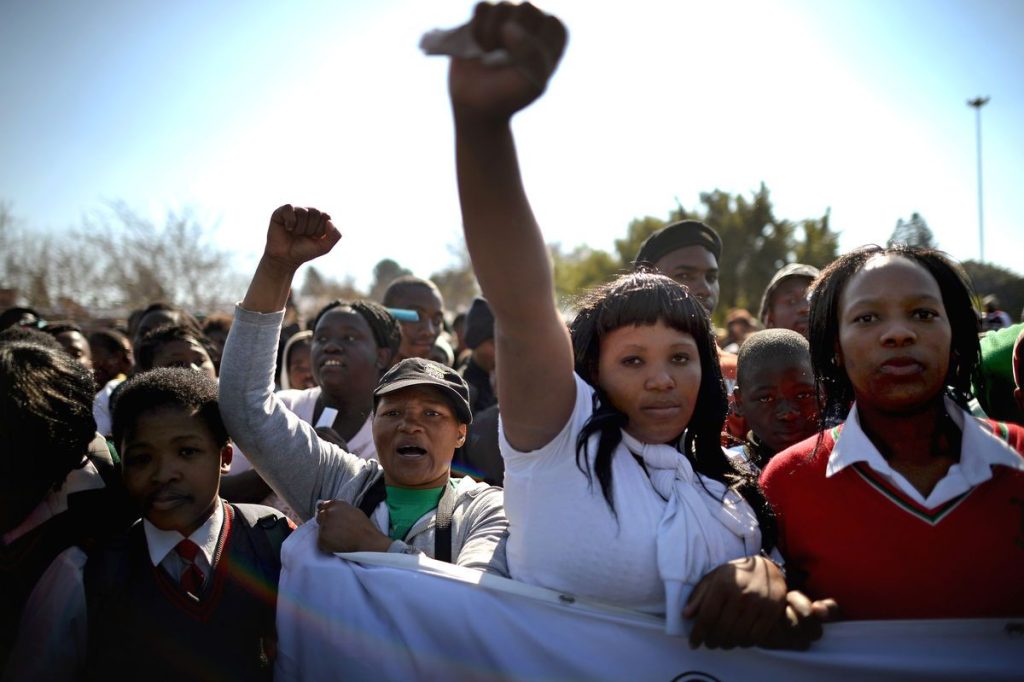Youth Month is coming to an end, this year the youth month celebrations were sober and reflected the reality facing millions of young people in South Africa. The lip service by the government is tiring and serves no purpose.
Attending various activities during this month here are some of the sound bites from different youth activities spheres:
“The face of the oppressor has changed, but the oppressing is still on,” said one of the young people in Alex. South Africa has oppressed its young people for the longest time, opportunities to participate in the economy. Creating an academic path that can lead to economic freedom has been a painful and hopeless expedition for hundreds of graduates.
Young people enter the schooling system with the hope of becoming active in the economy that improves their lives and that of their families, however, they realize post-graduation that they have been blindsighted and lied to by those in leadership.
When Prof Phakeng Mamokgetho asked in one of her podcasts episode “Where are young people? why are they missing in all the important conversations?” The response from the panel of young people was rather chilling, and sad, and sounded like a youth in defeat mode.

“Youth in 1976 had apartheid which united them, that was a unifying factor, today there is nothing that unites us as young people,” said one of the young people in that panel of discussion with Prof Phakeng. The current government has ensured that young people remain in that defeat mode by dividing them politically and economically.
How can young people become independently united under one voice?
Youth Month showed us that young people lack that unifying voice. The government has ensured that young people remain voiceless by choosing to give the Youth Ministry to grannies!
When was the last time young people had a voice in South Africa? It is difficult to even remember that voice. What can Nkk Dlamini Zuma achieve for young people? Precisely what her predecessor achieved 0. During the youth month, she was mum, not that one would want to hear from someone at that advanced age talking about youth issues, she cannot relate.
But since young people are in that defeated state, there is no way to challenge or question the selection of the grannies for the youth ministry.
Fees Must Fall and Rhodes Must Fall campaigns were glimpses of what a united youth can achieve, however, they also revealed an oppressive government that will not hesitate to unleash the might of law enforcement and security forces onto unarmed citizens. It was evident in the Marikana Massacre and the Phoenix Massacre during the July Unrests.
Young people have other means and ways to fight back, in the 2024 elections!

There are many issues facing the youth in South Africa, some of which include:
- Unemployment: The youth unemployment rate in South Africa is very high, with over 50% of young people between the ages of 15-24 not having jobs. This lack of employment opportunities often leads to increased poverty and crime.
- Education: Many young people in South Africa do not have access to quality education, which makes it difficult for them to acquire the skills they need to secure jobs, live independently, and contribute to their communities.
- Substance abuse: Substance abuse is a major problem among South African youth, with many turning to drugs and alcohol as a way to cope with stress and boredom.
- Crime: Young people in South Africa are often involved in criminal activities either by choice or as a result of their circumstances. This could be because of poverty, lack of opportunities, or peer pressure.
- HIV/AIDS: South African youth are vulnerable to HIV/AIDS, with an estimated 20% of young women and 10% of young men between 15-24 years old being infected with the virus.
- Teenage Pregnancy: Teenage pregnancy is a significant issue in South Africa and often negatively impacts the lives of both the pregnant teenager and her offspring.
- Mental health challenges: South African youth often struggle with mental health challenges such as depression and anxiety which can impact their overall well-being and hinder their progress in life.
These challenges can have serious and lasting effects on the youth in South Africa, and efforts must be made to address them through education, job creation, access to healthcare, and other support programs.
The question is who will make that effort to address the issues because seemingly young people have surrendered their fate to this defeat mode?
